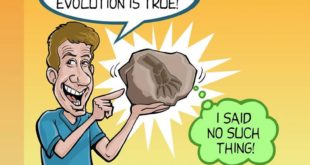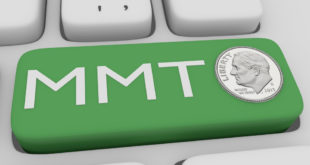Recently, Robert Lucas, who was called an economist, died. This is not about him, but about his kind of economics as tweets and obituaries show that it is not yet generally understood what kind of science the neoclassical macro-economist like him produced. Their most egregious failure: after decades of work, they do not even have a shimmer of anything which could pass for a neoclassical way to estimate the macro economy, even when their ideas are squarely at odds with the macro economy...
Read More »Decolonization: a necessary first step
from Asad Zaman This is part 3 of a talk on Current Economic Crisis in Pakistan and Solutions, from an Islamic Perspective. A summary of the first two parts is given below. This third part explains that colonization requires the assent of the colonized, which is achieved by an educational system which teaches the inherent superiority of the colonizers, and the inferiority of the colonized. To solve the problems created by colonial institutions meant for extraction of resources, we must...
Read More »The deadly sin of statistical reification
from Lars Syll People sometimes speak as if random variables “behave” in a certain way, as if they have a life of their own. Thus “X is normally distributed”, “W follows a gamma”, “The underlying distribution behind y is binomial”, and so on. To behave is to act, to be caused, to react. Somehow, it is thought, these distributions are causes. This is the Deadly Sin of Reification, perhaps caused by the beauty of the mathematics where, due to some mental abstraction, the equations undergo...
Read More »The “Which way is up?” problem in economics
from Dean Baker Economics famously suffers from a “which way is up?” problem. The issue is whether an economy is suffering from too much demand or too little demand. On its face, that seems like it should be a very simple question, but in fact it can be complicated and people often get it wrong, with very serious consequences. The Great Depression was the classic too little demand story. We had millions of people out of work through the decade of the 1930s because there was not enough...
Read More »Your new and improved digital currency is brought to you by: The World Economic Forum! (whether you want it or not)
from Norbert Häring The Central Bank of Kazakhstan published a report in July 2022 that developed the criteria for deciding on the design of the planned digital tenge. The tenge is the national currency of Kazakhstan. At the heart of the report is the conceptual groundwork of two guides from the International Monetary Fund and the World Economic Forum, the lobby of the 1,000 largest international corporations. The World Economic Forum’s guide is the one which is quoted more...
Read More »Why MMT is needed
from Lars Syll Mainstream economists do not believe that “countries that borrow in their own currency should not worry about government deficits because they can always create money to finance their debt.” Looking at the result from a survey, not a single economist agreed with that statement. If these economists had been right, we would see lots of governments running out of money in 2020 and 2021. After all, tax revenues collapsed, government spending was increased and accordingly public...
Read More »Weekend read – Bizarre methodology blinds us to solutions
from Asad Zaman The truth-sensing section of the brain is lobotomized by Friedman’s methodology, according to which wildly inaccurate assumptions lead to the most significant theoretical advances. But also, complete omission of power and class struggle makes it impossible to find solutions to our economic problems.[embedded content] Even though the current economic crisis in Pakistan has a simple cause, and an equally simple solution, policy debate in Pakistan focuses almost entirely on...
Read More »Something about prices I. ‘Risk free’ rates as administered prices in the sense of Gardiner Means.
On this blog, I’ve stated that economics needs a ‘periodic table of prices’. There are many different prices beyond ‘market prices’: Cost prices, Administrated prices, Government prices, Factor prices and whatever. We need a grid which enables a classification. As I, clearly, do not seem to be your average inspiring charismatic direction setting economists, nobody followed up on my statements…. With this blog, I want to start my journey towards the framework, to boldly go from where...
Read More »Google AI expert warns of massive uptick in productivity growth: No problems with Social Security
from Dean Baker We have long known that people in policy debates have difficulty with arithmetic and basic logic. We got yet another example today in the New York Times. The NYT profiled Geoffrey Hinton, who recently resigned as head of AI technology at Google. The piece identified him as “the godfather of AI.” The piece reports on Hinton’s concerns about the risks of AI, one of which is its implications for the job market. “He is also worried that A.I. technologies will in time upend the...
Read More »The econometric dream-world
from Lars Syll Trygve Haavelmo — with the completion (in 1958) of the twenty-fifth volume of Econometrica — assessed the role of econometrics in the advancement of economics, and although mainly positive of the “repair work” and “clearing-up work” done, he also found some grounds for despair: We have found certain general principles which would seem to make good sense. Essentially, these principles are based on the reasonable idea that, if an economic model is in fact “correct” or “true,”...
Read More » Real-World Economics Review
Real-World Economics Review




